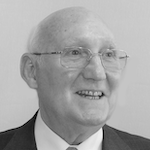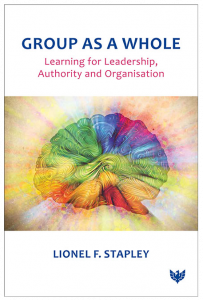 Lionel Stapley is an internationally recognised author, fellow of OPUS, organisational consultant and psychodynamic and executive coach working with individuals, groups and organisations in both public and private sectors across the UK and Europe, as well as South America, China, Hong Kong, Russia, Slovenia, Poland, and Ghana, West Africa. He is also a commercially focused consultant, engaging with major public and private sector organisations at a senior level to help deliver their strategic objectives. He has a proven record of growing brand recognition and of successfully managing and developing the reputation of an international educational charity that seeks to encourage the reflective citizen. Lionel is also a Chartered Fellow of both the CIPD and the CIM and a member of the International Society for the Psychoanalytic Study of Organizations (ISPSO).
Lionel Stapley is an internationally recognised author, fellow of OPUS, organisational consultant and psychodynamic and executive coach working with individuals, groups and organisations in both public and private sectors across the UK and Europe, as well as South America, China, Hong Kong, Russia, Slovenia, Poland, and Ghana, West Africa. He is also a commercially focused consultant, engaging with major public and private sector organisations at a senior level to help deliver their strategic objectives. He has a proven record of growing brand recognition and of successfully managing and developing the reputation of an international educational charity that seeks to encourage the reflective citizen. Lionel is also a Chartered Fellow of both the CIPD and the CIM and a member of the International Society for the Psychoanalytic Study of Organizations (ISPSO).
Lionel’s latest book Group as a Whole: Learning for Leadership, Authority and Organisation describes the current theory and practice of group relations conference learning followed by IGO consultants worldwide.
The inspiration for this volume was that of the book by Ken Rice Learning for Leadership published in 1965 which was a description of group relations at that time and, although published many years ago, is still of interest today.
This volume is intended to convey the current theoretical backdrop of group relations learning. This is not a static situation, the basis of group relations being psychoanalysis which has, in the last two decades, been researched and developed by neuroscientists, much of which has provided confirmation for the findings of Freud and other distinguished analysts.
In addition, the GR gurus, the principal world guru being Dr Eric Miller, also developed the practice of group relations. As a novice of group relations consultancy, and mentee of Dr Miller, I was interested in developing my own ability. So, at a particular conference I became aware of a decision of the director, a competent and skilled director, who had made a difficult decision. I decided to analyse what I might have done. I realised that there were several reasons that I would support the decision that had been made, but equally, I found that there were reasons that I would not support the decision.
Fortunately, I had the opportunity to discuss my reasons for and reasons against with Dr Miller. Those who knew Eric would not be surprised that he remained silent for a while as he was considering a response. Eventually, he said ‘everything we do should be done for the benefit of the learning of the members’.
This I regarded as a true philosophical system of principles for conduct of consultancy staff. As a director of group relations conferences, I would work to this way of understanding, and I would encourage the consulting staff to do so as well. It was a philosophy that I believed in and one which guided my actions as a group relations consultant. I then had the thought that Ken Rice had acted in the same way, and that what he had written in his book was for the benefit of the reader. I have followed my philosophy in the development of this book where I have done everything for the benefit of the reader, be that from my own experience or that of those such as Bion and Miller who I quote.
This philosophy also makes it clear that consultants doing everything for the benefit of the learning of the members does not include the consultants being self-centred and attempting to show just how clever they are – that is, working other than to the group task.
From my own experience, I realised that in the large group there were occasions when the members could not be moved, in spite of repeated attempts by skilled large group consultants, the members would remain silent. I then realised from my understanding of neuroscience that fight or flight is the first response to danger but, if this does not result in safety, the next step is freezing. The large groups remaining silent was their way of staying in a ‘freeze’ manner.
Fight and flight are the basic responses of all animals in situations that evoke pain or the threat of danger. Bion terms these as basic assumptions (ba) of fight or flight. There is a further response, which Bion was not aware of but neuroscience has revealed to us, that of ‘freeze’ which I refer to as ‘ba freezing’. We see this in individuals in situations that evoke the threat of danger, for example when an individual is threatened with a weapon or physical harm. The individual first assesses whether to fight or flee but when that seems impossible they may freeze and even hold their breath to avoid detection from the source of possible danger. The sound of talking may expose them to further danger, so they stay silent. The same thing is evoked in groups where the group as a whole acts in a similar manner to ba freezing and the freeze response results in the group inhibiting language in highly stressful and traumatic situations.
This recognition of a new basic assumption enables large group consultants to work with the members, understanding that they do not respond due to extreme fear.

If all group relations staff work to the philosophy that Eric Miller advised us, we will maximise the learning of the members. We might refer to this as the first phase of ‘group as a whole’ learning. However, the learning does not stop there. A second phase is that of application of the learning to the members’ own organisations.
This phase starts by requesting individual members to write a list of four or five significant ‘group as a whole’ learnings. They should all then be asked to read them out in public. There will inevitably be repeats of some of the stated learnings. This may lead to some form of consensus which may be the start of a process of application of the learning to the members’ organisations that they will return to, some may be able to identify a learning that will be valuable to their organisation, some may still be struggling to apply any learning to their organisation at this time. The important thing is that all will be aware of the process which will continue when they return to their organisations.
Completing the two phases results in a successful ‘group as a whole’ group relations learning for the benefit of organisations and the individuals within them.
Lionel Stapley
Group as a Whole: Learning for Leadership, Authority and Organisation is due to be published in June 2024.

